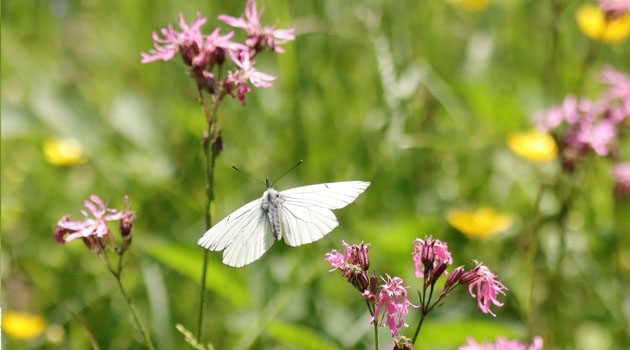Wijnand Boonstra elected to UN panel on biodiversity
Approximately one million plant and animal species are threatened with extinction – but what can we do about it? Uppsala University researcher Wijnand Boonstra has been elected to the multidisciplinary expert panel of the Intergovernmental Science-Policy Platform on Biodiversity and Ecosystem Services (IPBES), which among other things develops proposals for specific measures to halt the ongoing extinction event.
Biodiversity is the existence of a wide variety of species living in their natural environment. It means that we have many different types of natural environment, landscapes, plant and animal species and great genetic variation within those species. Today, however, our wealth of species is being reduced.
“Biodiversity is declining increasingly all over the world. The alarm is being raised about the ongoing extinction event, but why are we failing to turn the tide?” asks Wijnand Boonstra, a researcher in natural resources and sustainable development at Uppsala University.
resources and sustainable development.
Boonstra was recently elected to the multidisciplinary expert panel of IPBES, where he and his colleagues must not only answer the question of why we have failed, but also prepare a report proposing concrete measures to safeguard biodiversity and ecosystem services.
So, Wijnand, you have just returned from Montpellier and your first meeting with IPBES.What were your first impressions?
“In many ways, it was a very exciting meeting. This is one of the first evaluations of global sustainability in which social science researchers have a prominent role, as the evaluation deals with social change. In earlier reports from both IPBES and the IPCC, social scientists have had a more peripheral role.”
What kind of connections can we see between climate change, biodiversity and ecosystem services?
“We can now see that there is one common factor behind all of these changes, and that’s humans. Our communities have also undergone tremendous growth, our energy consumption continues to rise and thereby the waste we produce. This expansion and growth is now changing the climate, biological and ecological processes on Earth and we risk creating a biosphere that is considerably less beneficial to humans. We are biting the hand that feeds us.”
Is there cooperation between the Intergovernmental Panel on Climate Change (IPCC) and IPBES?
“Yes, they do cooperate. Both the IPCC and IPBES work on the greatest global challenges of our age: climate change and loss of biodiversity. There are forces at work that drive these processes, namely how our global societies are growing, especially in terms of energy consumption and the large amounts of hazardous waste produced in the process. Ultimately, both organisations are working towards the same goal: to reduced both inequality and energy consumption globally.”
The first report from IPBES, which compiled work from hundreds of expert authors from 50 countries, was published in 2019. In the report, the authors confirmed that globally around a million plant and animal species are threatened with extinction within the next decade.
The next report is due to be presented in 2024.
Malin Eivergård
The Intergovernmental Science-Policy Platform on Biodiversity and Ecosystem Services
The Intergovernmental Science-Policy Platform on Biodiversity and Ecosystem Services (IPBES) is an independent intergovernmental body established to strengthen the science-policy interface for biodiversity and ecosystem services for the conservation and sustainable use of biodiversity, long-term human well-being and sustainable development. It was established in 2012 by 94 Governments.

